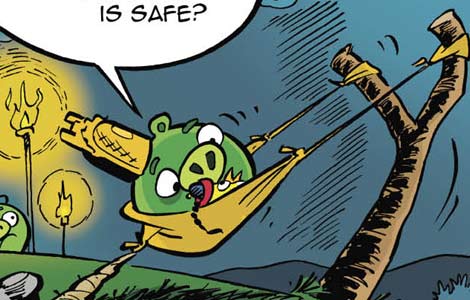UK, French leaders visit Libya; peace still far off
Updated: 2011-09-15 19:13
(Agencies)
|
|||||||||||
TRIPOLI - The French and British leaders arrived in Libya on Thursday to congratulate the new rulers they helped install, but families fleeing besieged bastions of ousted strongman Muammar Gadhafi are a reminder that peace is still far off.
The visit is a victory lap for Nicolas Sarkozy and David Cameron, who defied doubters at home to lead a NATO bombing campaign that succeeded in ushering in a victory by forces who swept away Gadhafi's 42-year rule last month.
With security tight, spokesmen in Paris and London said the two had arrived in Tripoli. Cameron's office said they would meet Libyan leaders before a news conference at 12:45 p.m. (1045 GMT). The two men were expected to fly on to Benghazi later.
Both are popular on the streets of Libya, where "Merci Sarkozy" and "Thank you Britain" are common graffiti slogans. Both may hope to earn political dividends back home from what now appears to have been a successful bet.
But on the eve of their visit, the leader of Libya's National Transitional Council said heavy battles lie ahead against Gadhafi loyalists who have refused to surrender.
NTC Vice Chairman Abdel Hafiz Ghoga told Reuters the two leaders would visit both Tripoli and Benghazi, where the NTC rulers are still based even though Gadhafi opponents seized the capital more than three weeks ago.
Western countries and neighbours are anxious to welcome Libya into the international community, not least so it can restart lucrative oil production frozen by six months of war.
Turkish Prime Minister Tayyip Erdogan is expected in Libya on Friday. Egypt's foreign minister, Mohammed Kamel Amr, is also due to visit. A US assistant secretary of state visited on Wednesday.
Libya's new leaders say the international community has been slow to release frozen assets; diplomats said on Wednesday Britain had circulated a draft resolution to the United Nations Security Council to ease sanctions against Libya's National Oil Corp (NOC) and central bank, and hoped for a vote this week.
Cameron's office said in a statement: "He is expected to announce a further package of UK assistance to support the Libyan-led process of transition to a free, democratic and inclusive Libya."
NOC chairman Nouri Berouin told Reuters Libya would start exporting crude oil from the eastern port of Tobruk within 10 days and could produce 1 million barrels a day within six months.
But the failure to capture Gadhafi, and ongoing fighting in and around besieged towns still firmly held by the ousted leader's supporters, are proof that a peaceful and prosperous future for Libya is far from assured.
The European Union on Wednesday demanded an end to arbitrary killings and detentions by both sides, and especially to vigilante attacks on sub-Saharan Africans and black Libyans, who are widely accused of having fought for Gadhafi.
Fight "far from the end"
Gadhafi has not been seen in public since June. In a letter read out on Syria-based Arrai TV he called on the UN Security Council to protect his hometown of Sirte -- still held by forces loyal to him -- from what he called NATO "atrocities".
"If Sirte is isolated from the rest of the world in order for atrocities to be committed against it, then the world has a duty not to be absent," Gadhafi was quoted as saying.
His spokesman, Moussa Ibrahim, speaking on a satellite phone from an undisclosed location, told Reuters the 69-year-old leader was still in Libya, in good spirits and ready to fight.
"The leader is in good health, in high morale ... of course he is in Libya," said Ibrahim, who declined to give his own location. "The fight is as far away from the end as the world can imagine. We are still very powerful, our army is still powerful, we have thousands upon thousands of volunteers."
The need for Sarkozy and Cameron to visit Benghazi as well as Tripoli is a sign of the obstacles Libya still faces in transforming itself into a peaceful, unified democracy. The NTC has not yet been able to safely establish a government in a capital still bristling with militiamen from disparate groups.
The country is deeply divided. Many of its new rulers hail from Benghazi in the east, while the fighters who won the battle for Tripoli mostly come from towns in the west. The NTC has promised to name a more inclusive government lineup within days.
Ghoga, the NTC deputy chairman, told Reuters in Benghazi that the NTC would remain based there at least until the "liberation" of cities in Gadhafi's supporters' hands.
Fierce fighting
NTC Chairman Mustafa Abdel Jalil, who will meet Cameron and Sarkozy in Tripoli along with interim prime minister Mahmoud Jibril, called for equipment to fight what he predicted would be hard battles against Gadhafi loyalists near the city of Sabha deep in the Sahara desert.
"There will be a lot of fierce fighting in this area," he told BBC television.
"We ask for support to get the right equipment in order to conquer these troops and to proceed further south to try and capture Colonel Gadhafi and his family."
He said Gadhafi would be planning attacks on oilfields, cities or power plants.
Towns held by Gadhafi loyalists have proven tenacious despite weeks of siege. After a week of fighting, NTC forces at Bani Walid, 150 km (95 miles) southeast of Tripoli, have been urging people to leave before they try to storm the town.
Hot Topics
Libya conflict, Gaddafi, Oil spill, Palace Museum scandal, Inflation, Japan's new PM, Trapped miners, Mooncake tax, Weekly photos, Hurricane Irene
Editor's Picks

|

|

|

|

|

|







